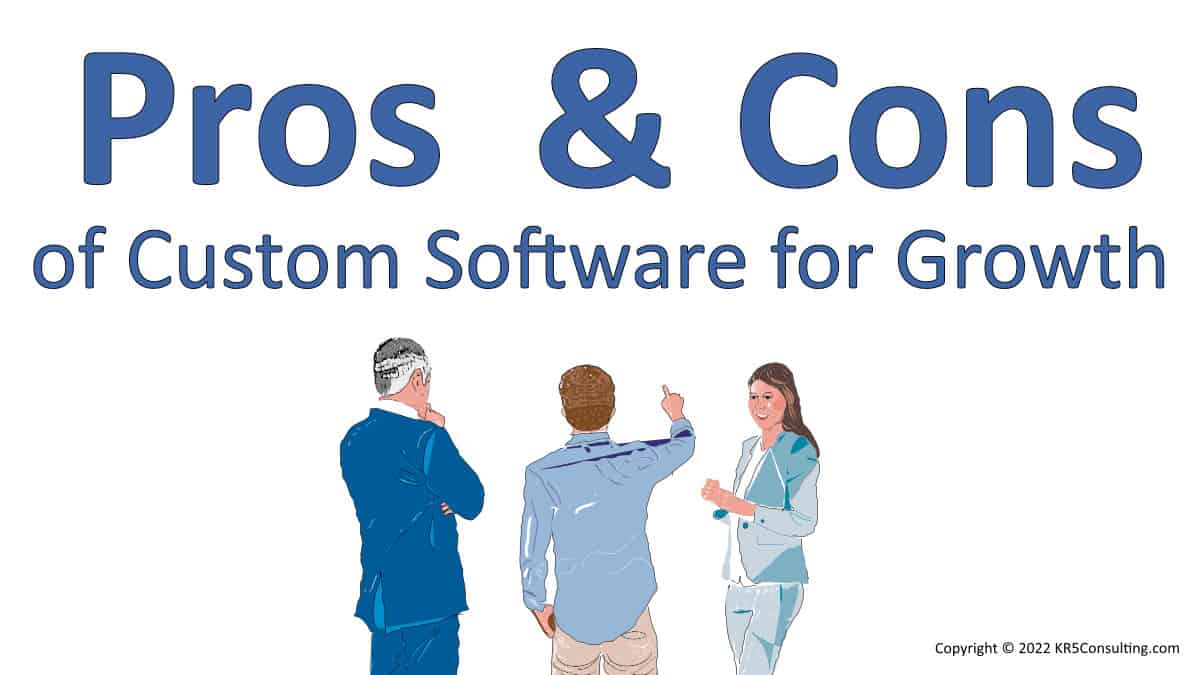Entrepreneurs with big plans are curious about the pros and cons of custom software. How will it help them build a strong business? Does custom software increase the value of their business? Will it create enough of a punch to warrant the upfront investment?
Of course, custom software is nothing new to tech companies. They’re looking for a shining star to reward their investment. But that reward is by selling their product to a market of customers. That’s not the case for a business that’s building something for itself, or is it?
Creating value for customers is the main driver for custom software. Tech companies monetise that value through selling licences. Others, such as Amazon, Airbnb and Uber use custom software to create a unique and attractive service. It’s monetised through each sale. But it doesn’t mean its only ecommerce. Custom software comes in all shapes and sizes. Therefore, you can create value in new and exciting ways.
Many struggle with getting the best of out of technology. Our guide, Business Technology: Essential Guide to Best Use, will help you create a robust process to ensure your new tech achieves your aims.
What is custom software?
Custom software is an app built for a specific purpose. In this article we mean that it’s unique and designed to meet a specific business need. A need that’s not usually met by something else that’s in the market. For example, if you sold washing machine spares, you might build an app that helped customers select the right part for their machine.
What’s the advantage of custom software?
A market advantage is the strongest reason for building custom software. That might be to disrupt the market. It could reduce barriers or open new markets. If the custom app can make your offer more attractive than any other, it’s the way to go. But there are other pros too:
- Streamline work so that you can do more, faster and for less effort.
- Build new capabilities to support your growth strategy
- Make it harder for competitors to copy what you’re doing. Or give you a first mover advantage.
Your custom software is a business asset. If it creates unique value, then it makes the business more valuable. For example, you see this in the valuation of tech companies.
What’s the disadvantage of custom software?
The disadvantage of custom software other than a higher upfront investment and longer timescales are:
- You need to think carefully about what you need to build. It’s often a blank sheet of paper. You don’t want to include outdated ways of working, but you also don’t want to miss meeting the business need.
- Custom software needs a broad range of skills not met in a single person. Therefore, it’s a team effort needing different skills at each stage.
- Ownership comes with its costs. There are costs of hosting, making changes, maintenance, and support.
- There’s more uncertainty and therefore more business risk. In the initial stages you may wonder if it will really work.
How’s custom software built?
Software engineers build custom apps by writing code that make the app work. In practice, it’s rarely built from scratch. Here are three common approaches:
- Software Development Frameworks help create apps faster. They have prebuilt code and ways of working that make it easier to create high-quality apps. This is the most flexible and takes the most effort. The engineer needs to write the logic but can create such things as the user interface more quickly. Example frameworks include Ruby, Django & Angular.
- Then there’s creating apps with third-party software and a framework. In this case, an engineer may use a product such as a database, rules, or reporting engine. This adds blocks of rich functionality. It’s quick and flexible. The downside is that engineers need to learn how to use the components and work out how to include them into the solution.
- Finally, there’s using an app you can customise. For example, Customer Relationship Management or Enterprise Resource Planning apps. Although less flexible, you can quickly extend and change them. The downside is that they may contain stuff you simply don’t need. That can be costly or make things more complex than they need to be.
What are the options for building custom software?
There are three common options for building custom software, each with their pros and cons. These are:
- Build in-house. This is common for tech companies but requires a broad set of skills. For example, you’ll need to think through how it will work, create a design, build, and test the app. It also requires tools for each stage. This will help protect your IP and you’ll be master of your own destiny. The downside is recruiting, retaining and the cost of keeping the team. In practice you can buy in skills, for example we at KR5 Consulting can help with the initial stages and product management. For large projects, you could also outsource part of the project.
- Outsourcing and maintain in-house. Although I’d recommend controlling the spec in-house, once you know what you want, you can outsource the build. Both sides need to be clear about what’s expected. The handover to the in-house team must be seamless. After all, they must be confident about making future changes.
- Partnership. The partner builds, maintains and supports the app. The success of this depends on the partner relationship and their maturity. Continuity and level of support come at a cost. You’re more exposed as you depend on the partner, and you need to take care about retaining your IP.
Conclusion
Custom software can give you a major business advantage. It can strengthen or enhance your offer and may disrupt your market. If this is the case, it will add value to your business.
Choosing to build custom software is a significant business decision. There’s an upfront investment and it takes time before it delivers value. Therefore, you’ll need to weigh up the pros and cons of custom software for your business.
The decision to build custom software is best in the context of the business strategy. Ideally it will enhance existing strengths that will help make the business more attractive.

